Meet 12 of the Rural Candidates Running for Office This Year
The liberal political establishment has all but abandoned organizing in rural communities. These campaigns hold the key to keeping our democracy alive.
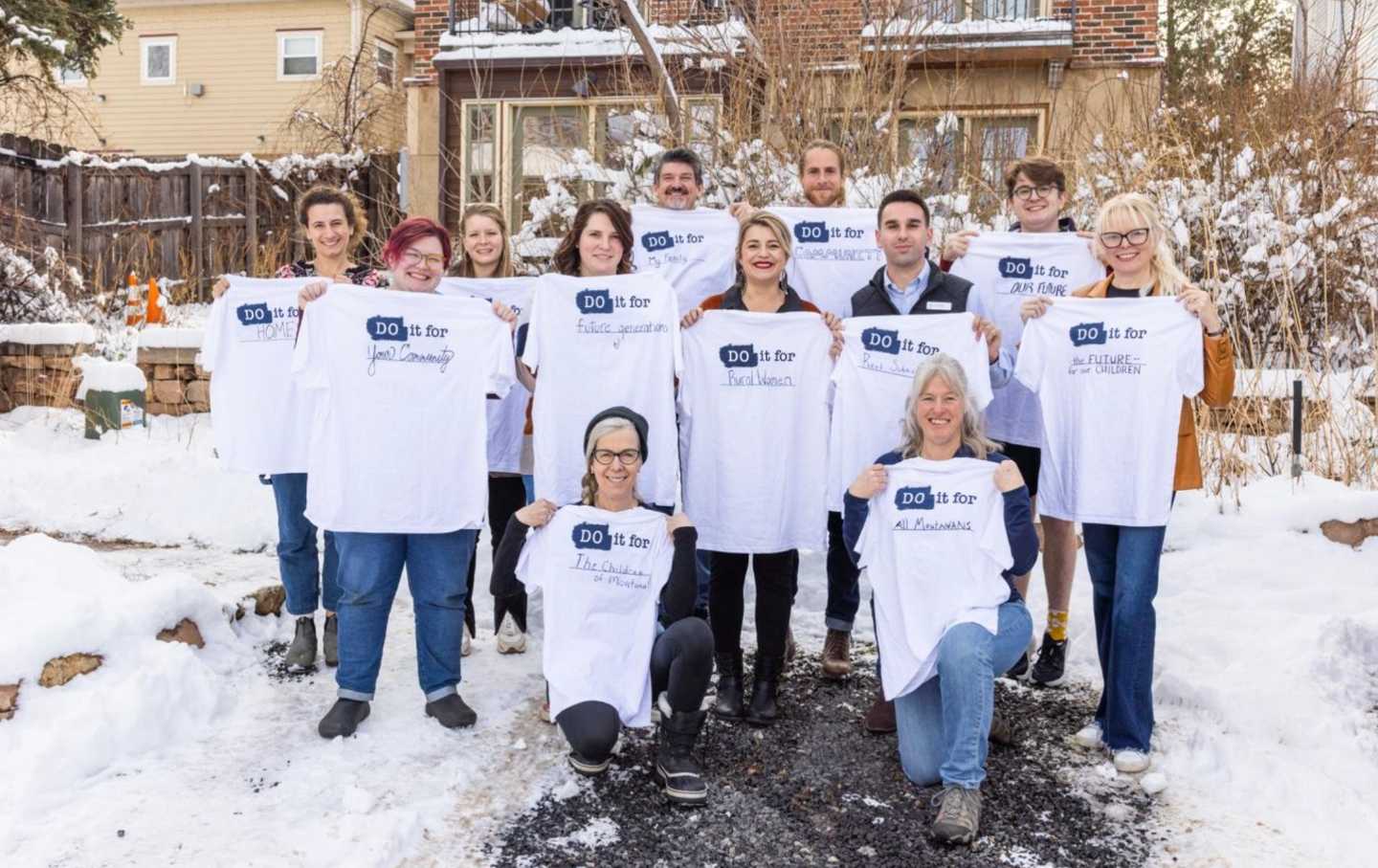
As we approach the November election, fear and anxiety dominate. The presidential and other federal races are, of course, center stage, but there are other candidates who are critical to pulling our democracy back from the brink. They are rising above partisan politics in the most unlikely places to unite voters around pragmatic policies that improve the quality of life for their families and their neighbors.
We’re talking about downballot rural races and the bravery, courage, hope, and commitment it takes for progressive candidates to organize in the overlooked corners of America.
We are the codirectors of Dirtroad Organizing, the only national training program for progressive rural organizers and candidates. This year, Dirtroad Organizing is supporting 72 leaders who are doing the intense and vital work of building bridges in small towns that have been split apart by partisan wedges.
Why do rural races matter? Our democracy was designed to privilege voters spread out across large geographical areas. Rural voters have outsize political influence, yet over the last 15 years the liberal political establishment all but abandoned organizing in these communities. Resources were directed by top-of-the-ticket campaigns toward a political calculus that relied on squeezing every bit of turnout from the most populous areas. Overlooked by this strategy, rural America lurched to the right.
While conservatives slashed budgets for vital rural services, creating insecurity and fear, their scapegoating tactics manipulated and inflamed rural voters. Political opportunism expressed in a new politics of anger, exclusion, and hate drove extremism and polarization in many rural communities. That extremism took root in town halls and state legislatures, while bleeding into congressional races, the Electoral College, and ultimately the judiciary. Now, democracy hangs in the balance.
The solution—like the problem—is hyper-local, beginning in our small towns and rural communities. There lies the best hope for our country. It means we organize, invest, and run for office in these communities, rebuilding trust door by door, conversation by conversation.
Dirtroad Organizing is galvanizing and training the next generation of progressive rural organizers, staff, and candidates who are leading this democracy work. Each day, these new leaders are listening to neighbors and reclaiming common ground from beneath the scorched earth of national politics. We provide training and mentorship to support this work and help forge a viable path towards the policies needed for a durable, just, and equitable future. This new politics is rooted in community and values, not partisanship. It’s not always about winning in these tough districts—it’s about doing the deep organizing that doesn’t end on election day.
You may not have heard of our candidates, but they are doing the often joyful, often tough, always heroic work that can turn the tide in rural America.
Chris Wier, Oklahoma State House District 4
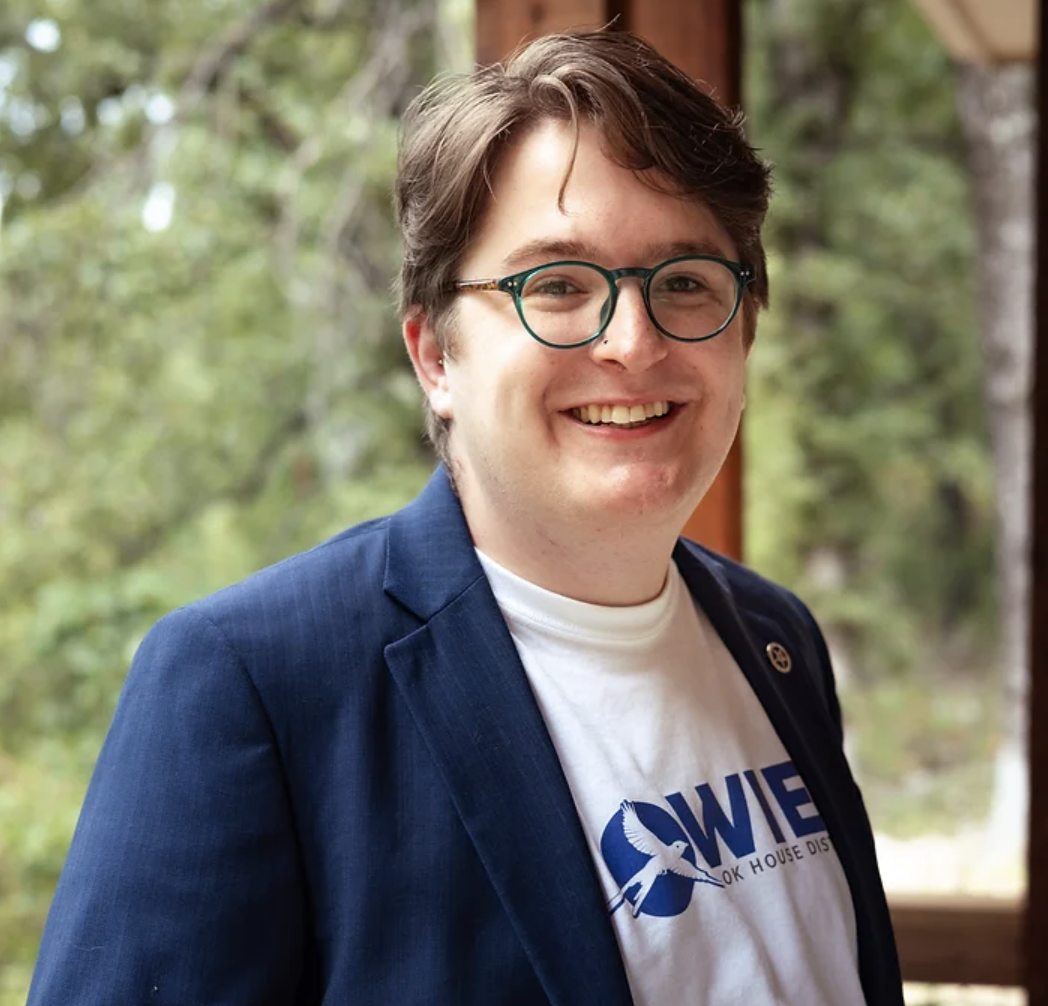
Meet Chris Wier, a 23-year-old Cherokee citizen running to represent their community in the Oklahoma legislature. They have built an intergenerational campaign predicated on meeting the basic needs of the community by fighting for quality healthcare, fully funding public education, protecting tribal sovereignty, and standing up for their rural way of life. A typical campaign weekend often sees Chris and their volunteers knocking doors or writing postcards to voters all afternoon, then finishing off the day with a cookout and bonfire.
Lucia Valentine, West Virginia State Assembly District 97
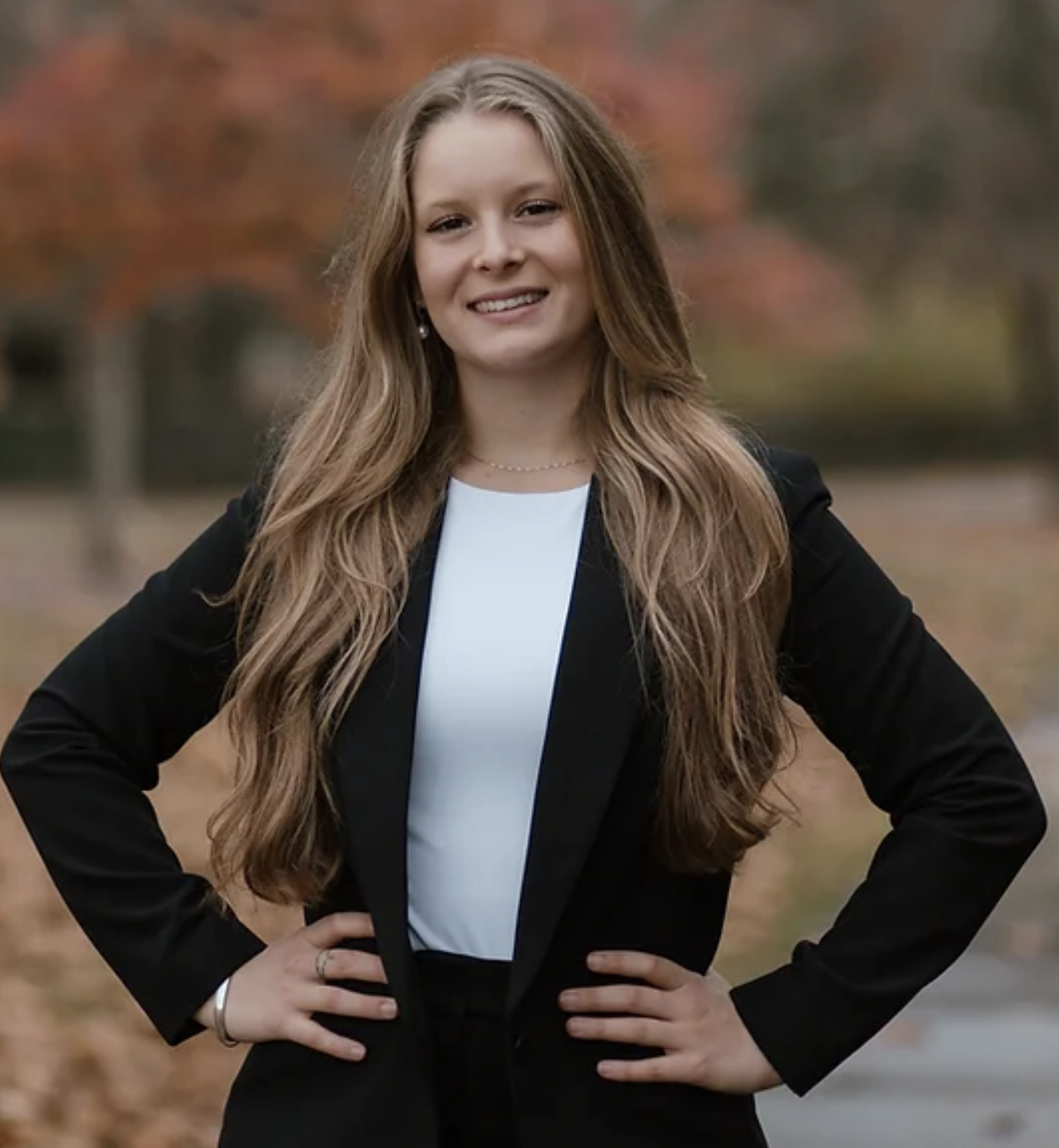
In West Virginia, two young women and best friends—Lucia Valentine and Maria Russo (below)—are running for the State Assembly in adjacent districts where they grew up together. Lucia has been an environmental advocate in the West Virginia Legislature fighting for cross-partisan legislation to protect clean water for all West Virginians. She is translating that expertise into a strong campaign with a focus on collaboration and a vision for a future where young people can thrive within their state and contribute to its growth and sustainability for generations to come.
Maria Russo, West Virginia State Assembly District 100
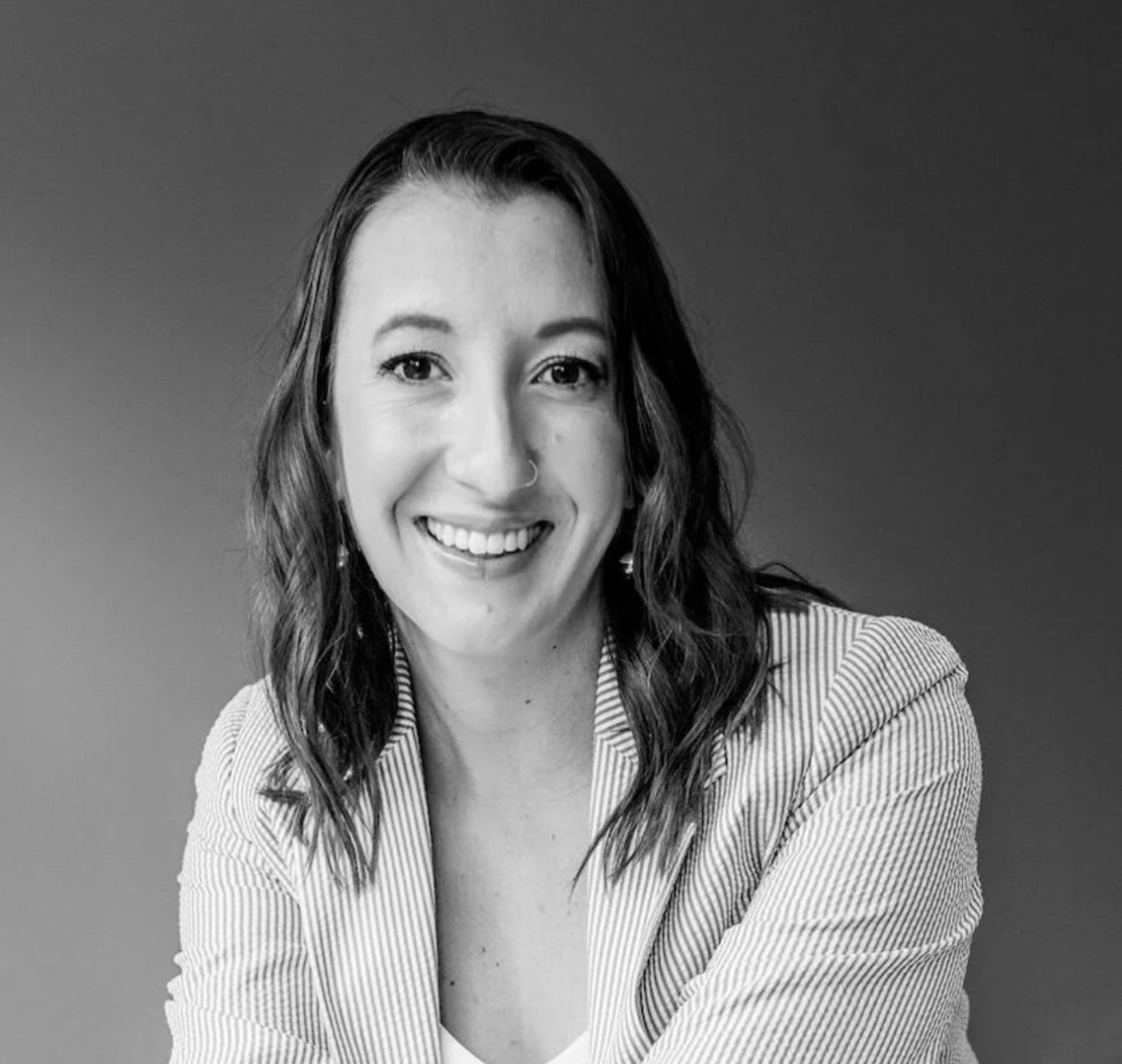
Rooted in her childhood community, Maria Russo runs a small farm and advocates for a healthier West Virginia. She is a former public school teacher and coach, a public policy strategist, and a clean water advocate. Her work with the West Virginia Rivers Coalition helped get the 2023 PFAS Protection Act passed and signed into law by Republican Governor Jim Justice. Maria and her volunteers are focused on reaching beyond the base: registering young voters, showing up for forums hosted by groups with opposing ideologies, and driving down long dirt roads to reengage disillusioned voters across the district.
Derek Hawn, Tennessee State House District 41
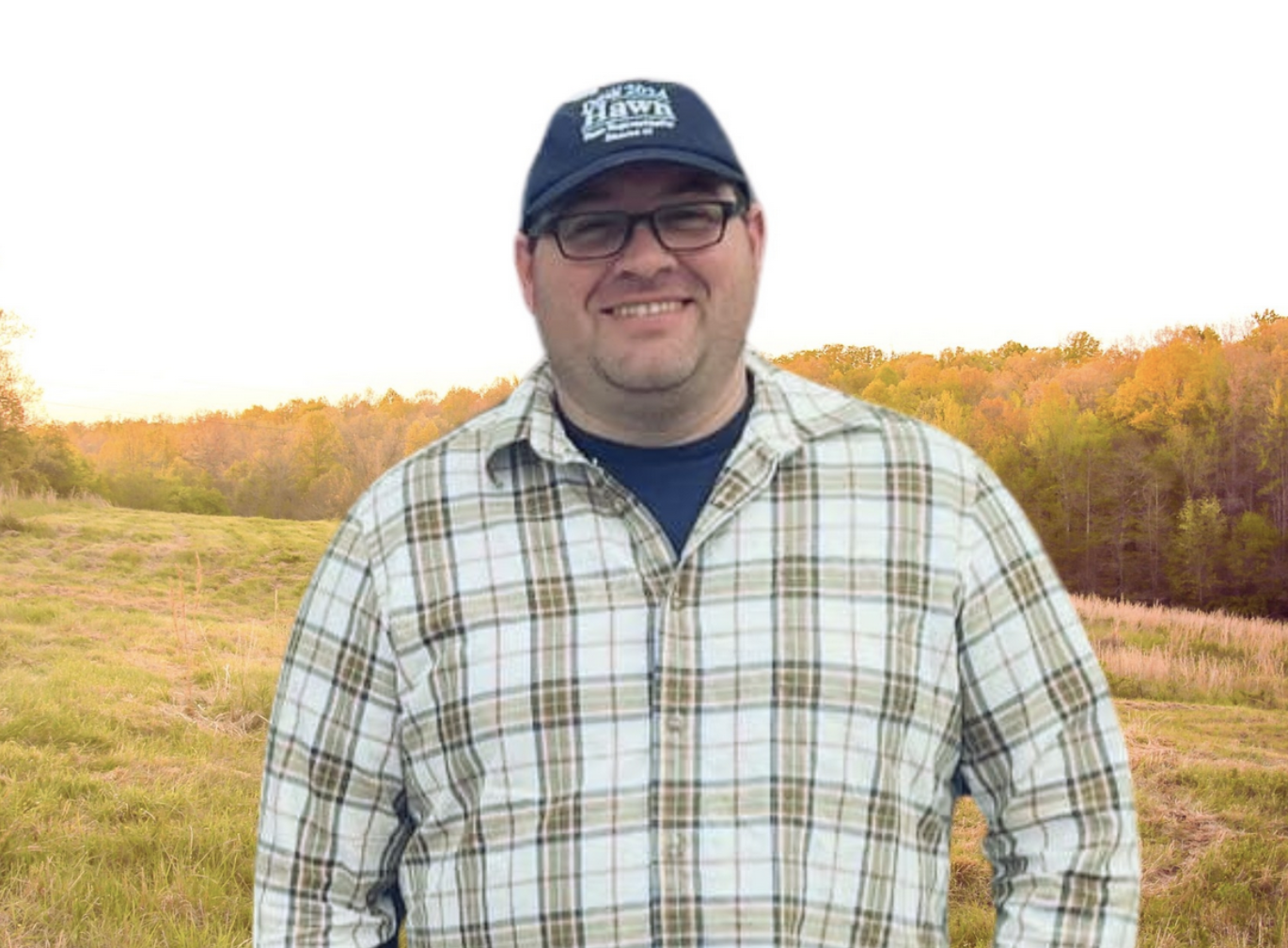
Born and raised in rural Eastern Tennessee, Derek Hawn is a paramedic and first responder educator. Talk with Derek, and you will hear insight into the reality of rural America unlike any other. His experiences serving the people in his community as a first responder have become the foundation of his campaign. “I see daily where the healthcare system is failing us,” says Derek, and he believes that “access to affordable healthcare should be a right, not a privilege.” He is acutely aware of the importance and impact of local relationships, and he loves to bring people together over live music and good food to talk about the issues that matter to them. His welcoming and down-to-earth nature has fostered a new spirit of politics in District 41, which emphasizes social bonds, community engagement, and valuing every voice.
Vern Masters, New Hampshire Grafton County State House District 1

Vern Masters is running in Littleton, New Hampshire. This small town may sound familiar to you if you read this New York Times article giving voice to the queer rural resistance in this corner of the country. Fighting for young rural voices, Vern is a powerhouse and a much needed bridge between community organizers and the legislature. “The North Country can be an isolating place if you’re one of the weird kids,” says Vern. “But it takes so many personalities and people with diverse interests to build a functioning, healthy community that can take care of itself.”
Popular
“swipe left below to view more authors”Swipe →Kathryn Larson, Idaho State House District 1

Kathryn Larson decided to run out of civic duty and a desire to serve. She has been spending the majority of her time driving across the district meeting voters and developing relationships with the people in her community who feel left out of the political process. Kathryn’s love for her home state influences her views on the role of local politics. She is deeply influenced by the stories of the people in her district and spends time getting to know every person she talks to. She writes about the impact of some of these encounters in a series of blog posts called Tales from the District, and these stories are what drive Kathryn’s campaign.
Michelle Higgs, Indiana State House District 60

In Indiana, Michelle Higgs is transforming the rural conversation across the state. She organized the Indiana Rural Summit, galvanizing more energy and attention towards rural organizing in her state. Her organizing has created a broad coalition across a dozen gerrymandered districts, bringing voting bases together across district lines with an overarching goal of working together to solve big regional issues like like employment and economic stability, child and family well-being, and affordable and safe housing. Michelle’s district spans 461 square miles, but she has built a strong team that’s knocking on hundreds of doors a week to cover every part of it.
Jen Tracy, Missouri State House District 120
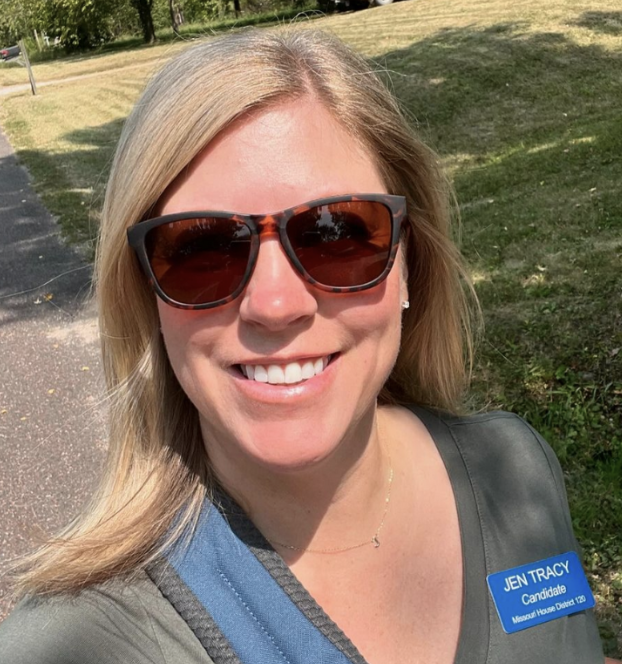
In Missouri, Jen Tracy is working on creating inclusive and commonsense politics, engaging with her community through events and volunteer actions that emphasize civic empowerment and voter readiness. From hosting “Empowered & Informed” events to discuss women’s voting rights, ballot measures, and the election process to connecting with voters directly through canvassing, to answering questions over good food with a “BBQ&A” for her district, Jen is fostering open, meaningful conversations about issues like healthcare access, education quality, and economic opportunity centered on shared values rather than party.
David Arends, Montana State House 18

In northern Montana, David Arends is giving voters a choice in a district that—for the past 12 years—has had uncontested elections for state representative. Building a campaign based on communication, honesty, and showing up, David has revived campaigning in his huge rural district that borders Canada. David is a physician’s assistant of 16 years and truly understands the dynamics of his rural corner of America. “We’re getting so much support from conservative circles who are ready for a change here,” reports David. In the face of a smear campaign that demonstrates the worst of politics, David has stood strong in his commitment to building a positive politics that brings his community together, rather than tearing it apart.
Melody Cunningham, Montana State House District 97
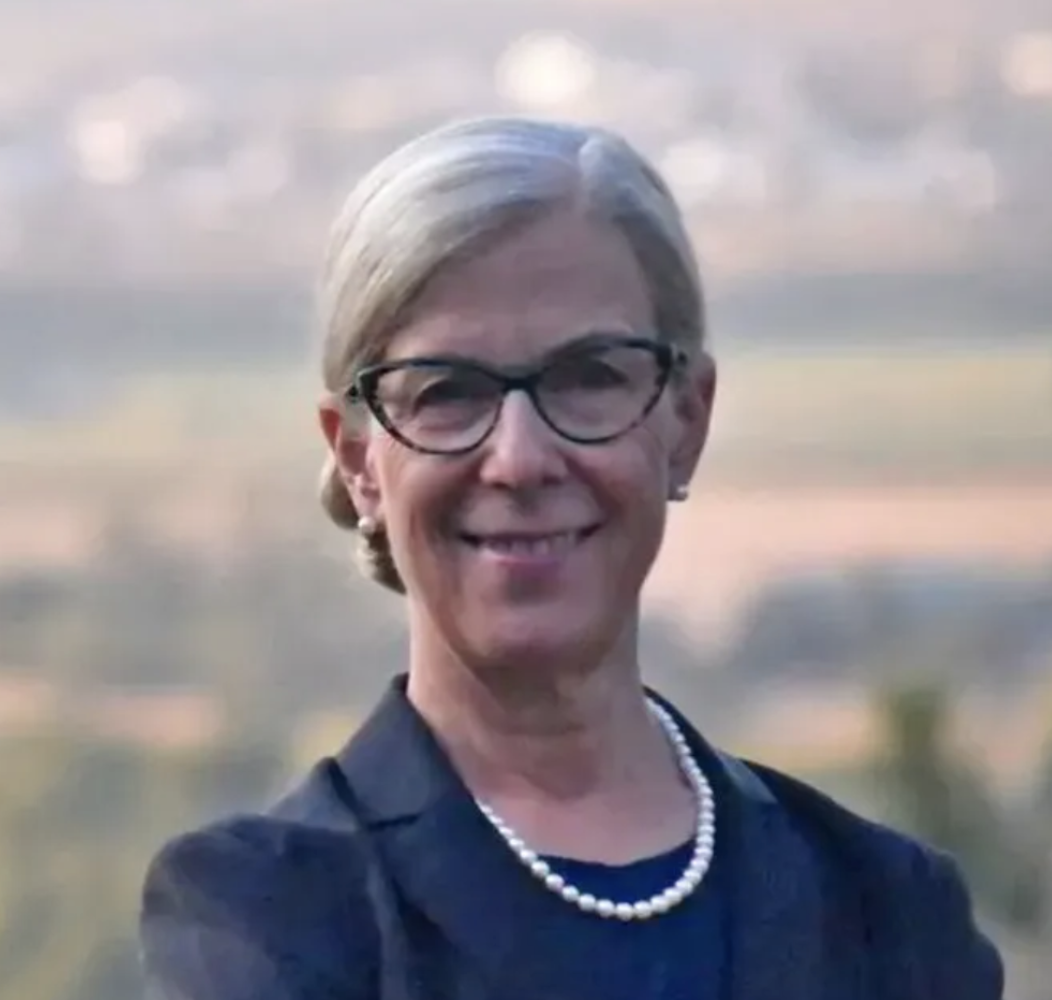
Also in Montana is Melody Cunningham, bringing joy, love, and a background of fierce advocacy to her rural district. Melody began her career as a high school chemistry and physics teacher for girls from underserved, inner-city areas before moving into a long career in pediatric oncology. She describes her passion as “amplifying the voices of those who are often not heard.” Melody has been knocking doors and talking to voters since last winter, building a formidable base in her bid to unseat a powerful incumbent representative and fight for healthcare, public education, and affordable housing.
Linda Alvarez, New Mexico House District 32
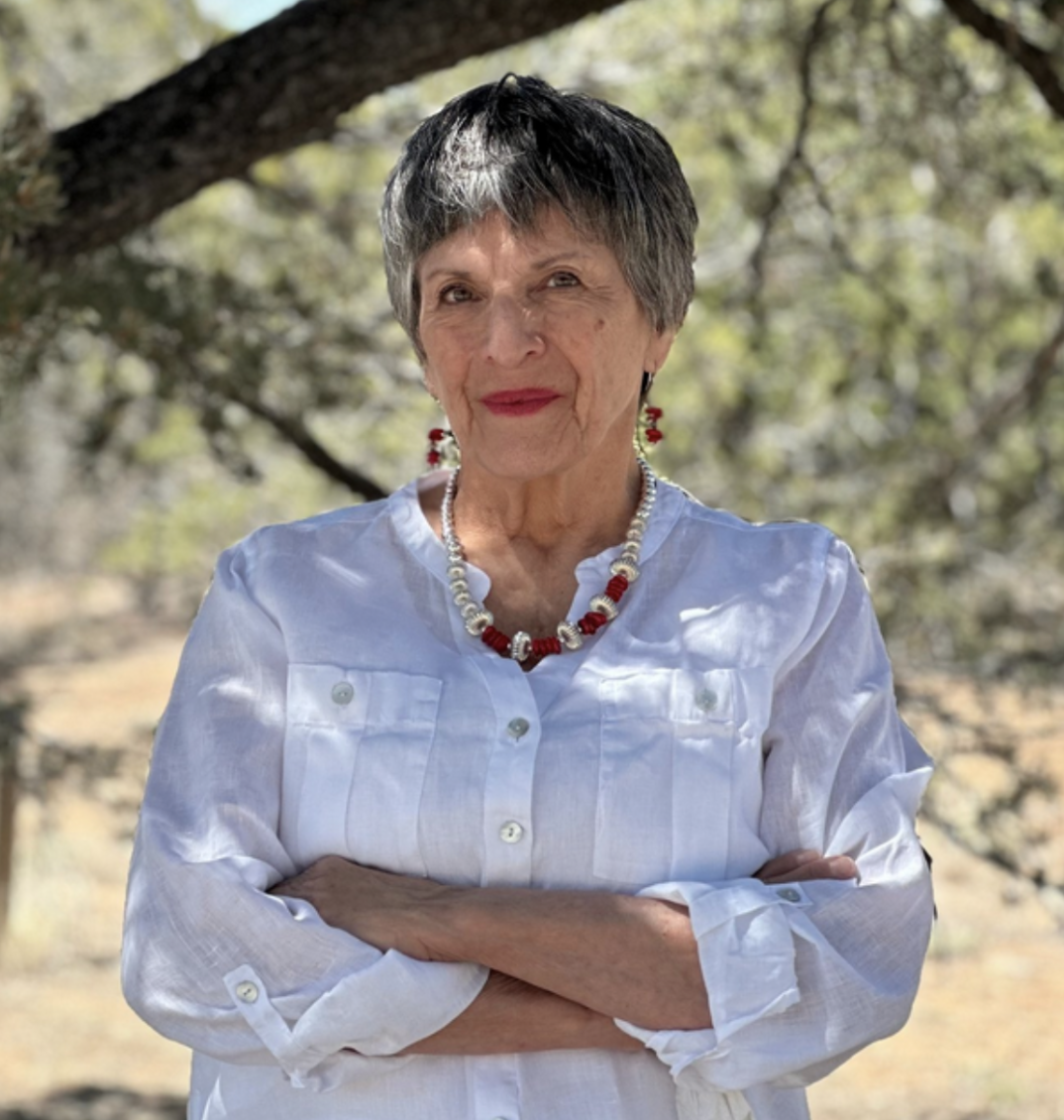
Linda Alvarez is running in New Mexico’s Hatch Valley. Linda is proud to come from a multigenerational farming family and is deeply rooted in her community. She knocks on hundreds of doors in her district every week and has earned the endorsement of local unions, veterans, and educators that span the ideological spectrum. Over the past few years, Linda has been traveling across New Mexico advocating for individuals with disabilities, and her passion for protecting the rights of all people has been a guiding factor for her campaign. When she’s not campaigning, you can find her playing third base for her community softball team.
Sarah Keyeski, Wisconsin State Senate District 14
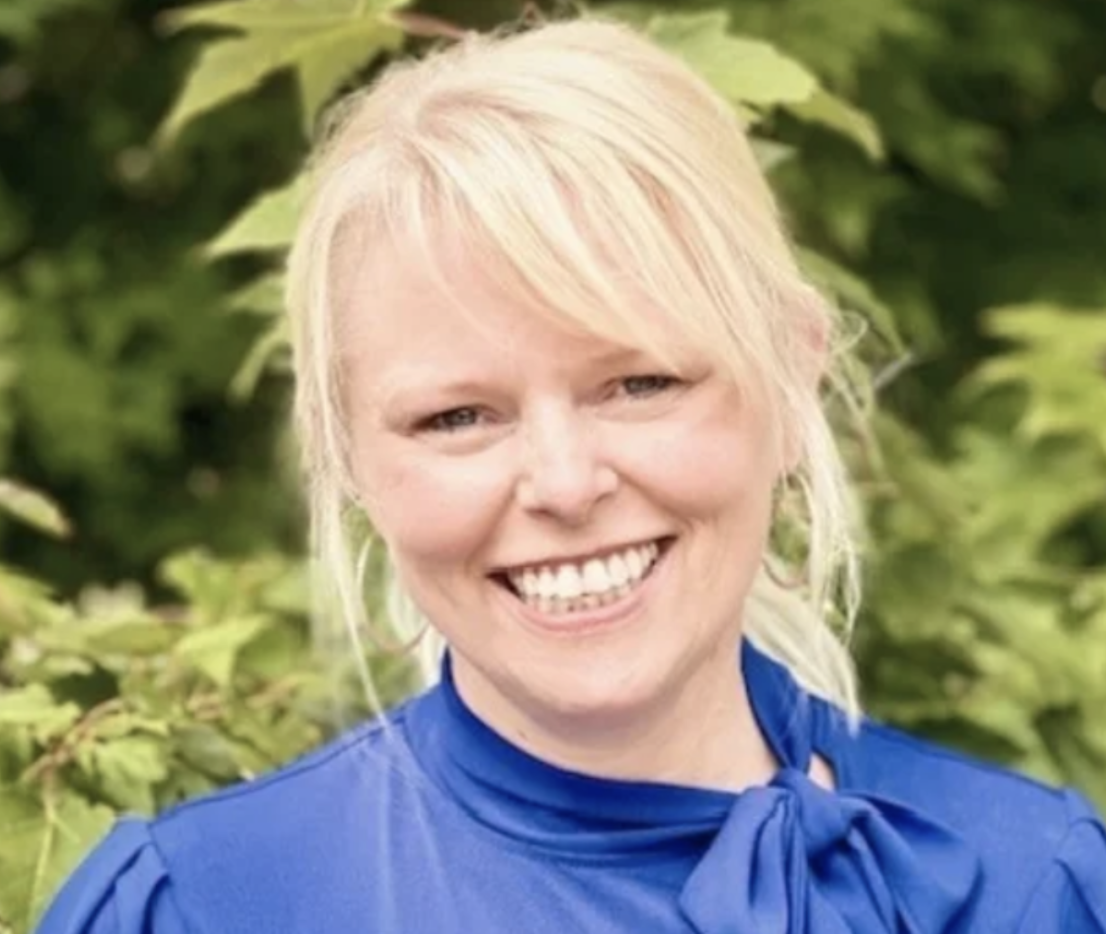
Last, but certainly not least, meet Sarah Keyeski! She is running for one of the most competitive state senate seats in Wisconsin. You may have heard of her from this podcast in The New York Times detailing how her campaign connects with rural voters on priorities like education, reproductive freedom, mental health, and childcare. The daughter of a dairy farmer, Sarah’s love for her home state is infectious. Although Sarah left her hometown of Cashton, Wisconsin, to pursue a career as a licensed professional counselor, she was called to return to her rural roots to raise her six children with her husband. Sarah’s passion for making her community a better place led the people in her district to ask her to run for office. Since then, she has been enthusiastically running a campaign grounded in compassion, contribution, and courage.
As we work to fend off authoritarianism and preserve our democratic institutions, the heartbeat of rural America defines our horizons. Chris, Lucia, Maria, Derek, Vern, Kathryn, Michelle, Jen, David, Linda, Melody, Sarah, other Dirtroad candidates, and all community-centered rural organizers have their fingers on this pulse. Their daily on-the-ground campaigns can keep our democracy alive as they connect with people on the most fundamental level: face to face. And these campaigns will continue to be essential sources of change well beyond November.
More from The Nation
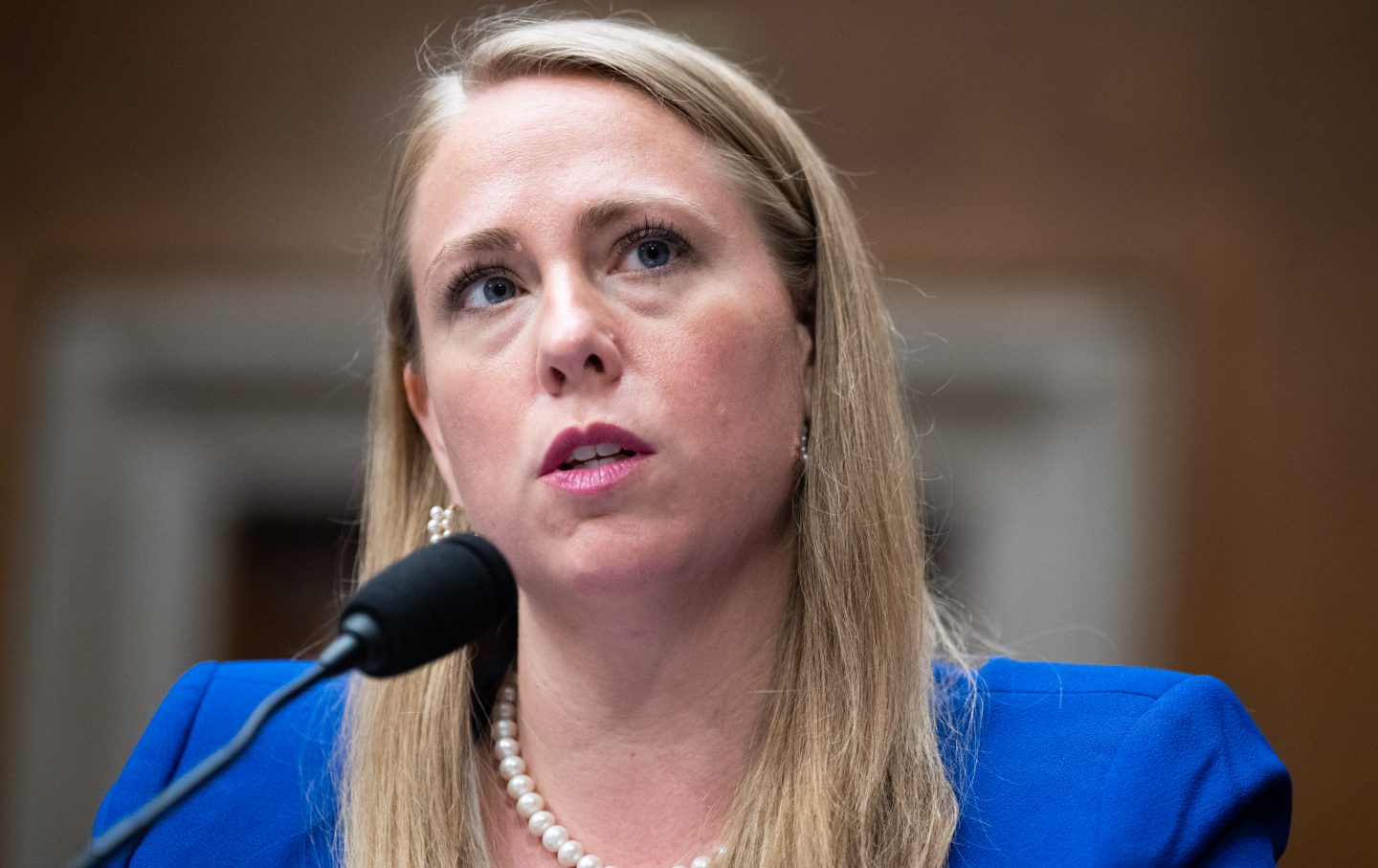
The EEOC Is on the Verge of Making It Harder for Workers to Fight Harassment The EEOC Is on the Verge of Making It Harder for Workers to Fight Harassment
The agency is planning to delete a document that provides up-to-date guidance on the protections workers have in this complex and rapidly changing area of law.
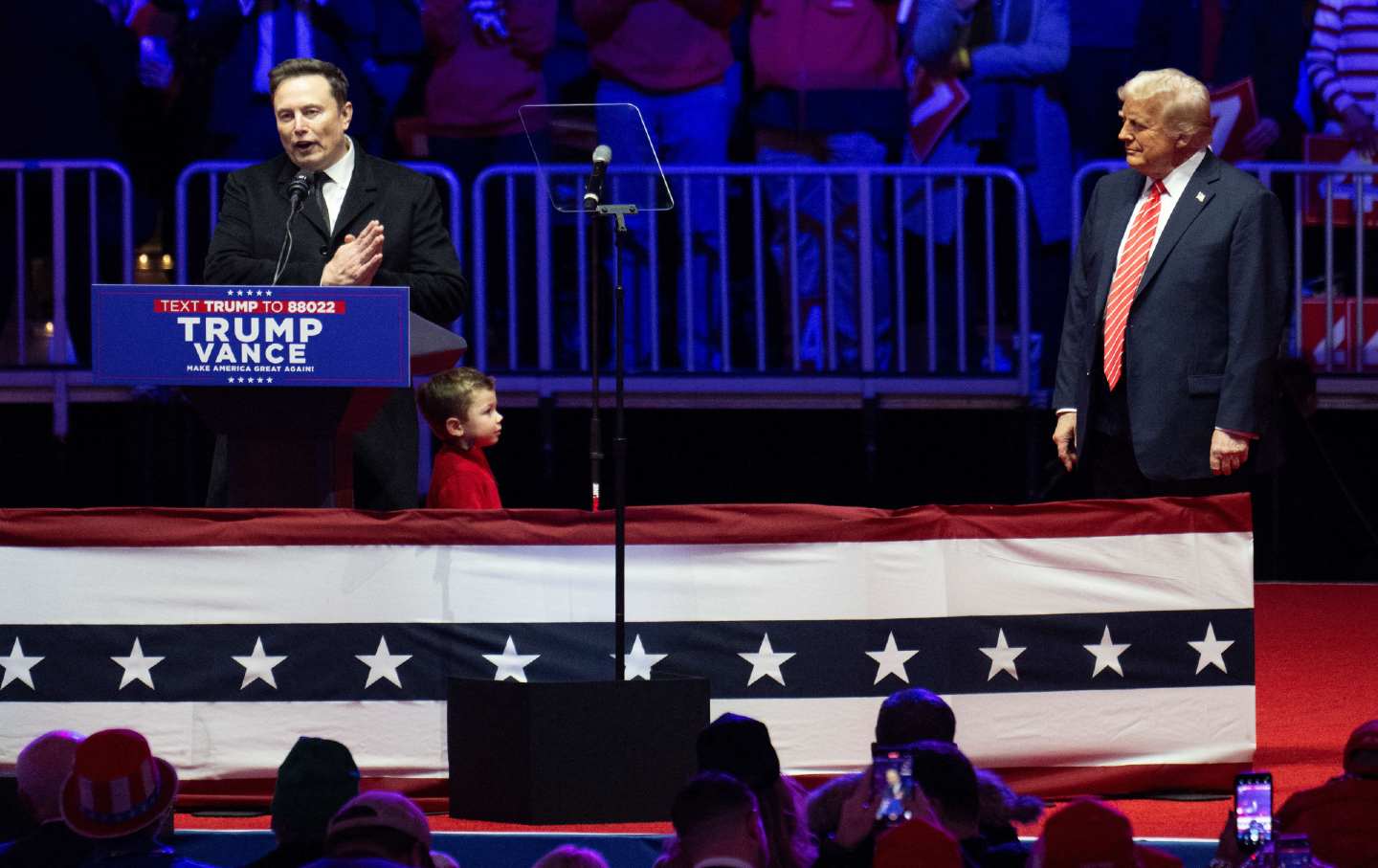
One Year Into Trump 2.0, Elon Musk Is Still Poised to Be Kingmaker One Year Into Trump 2.0, Elon Musk Is Still Poised to Be Kingmaker
The neofascist tech oligarch was cast out of Trump’s inner circle, but his money and influence are still omnipresent.
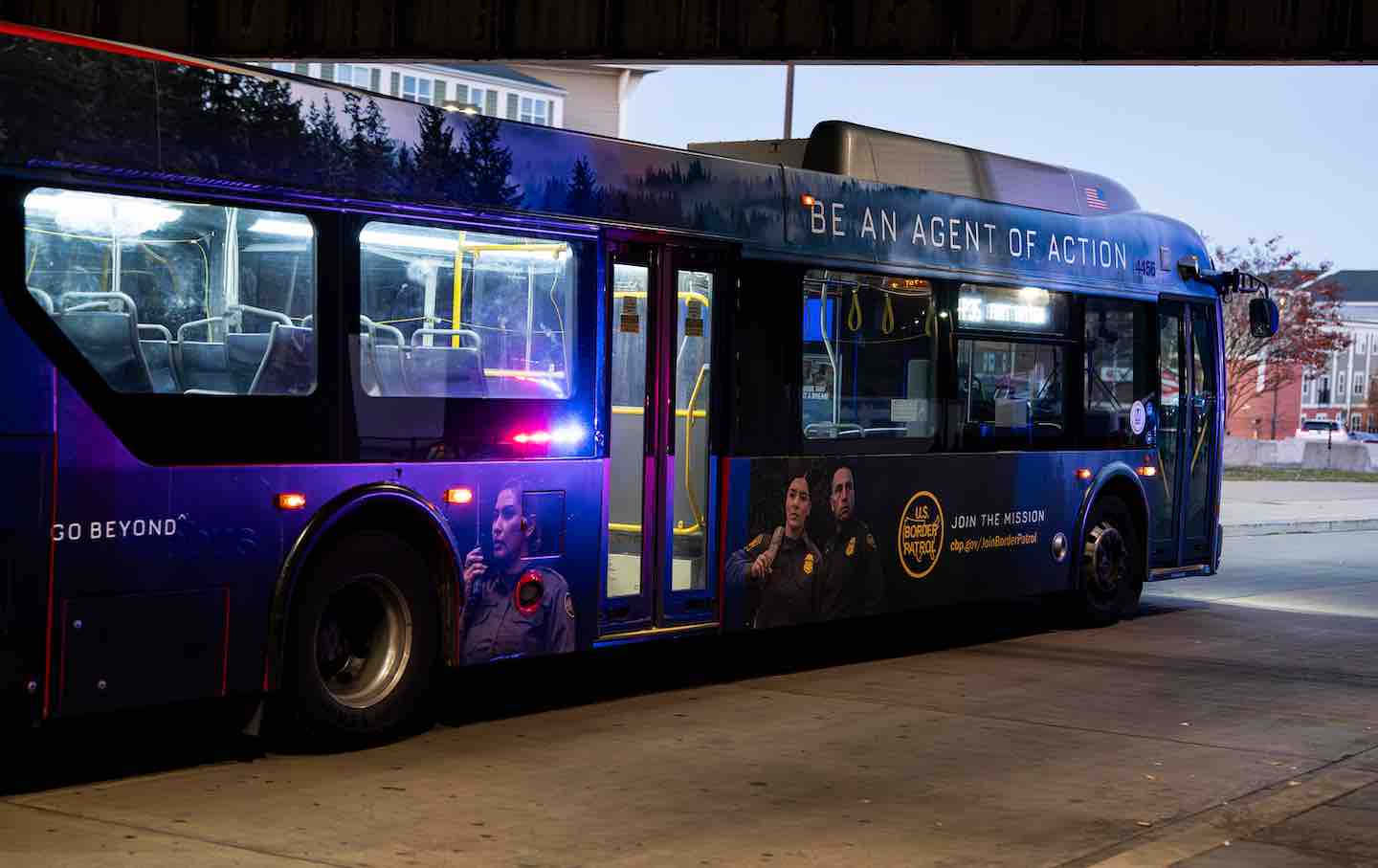
Why Is Washington DC Blanketed in Ads for the Defense Industry? Why Is Washington DC Blanketed in Ads for the Defense Industry?
In the metro and in public spaces, its hard to miss all the advertisements hawking the lethal wares of military contractors, tech companies, and the like.
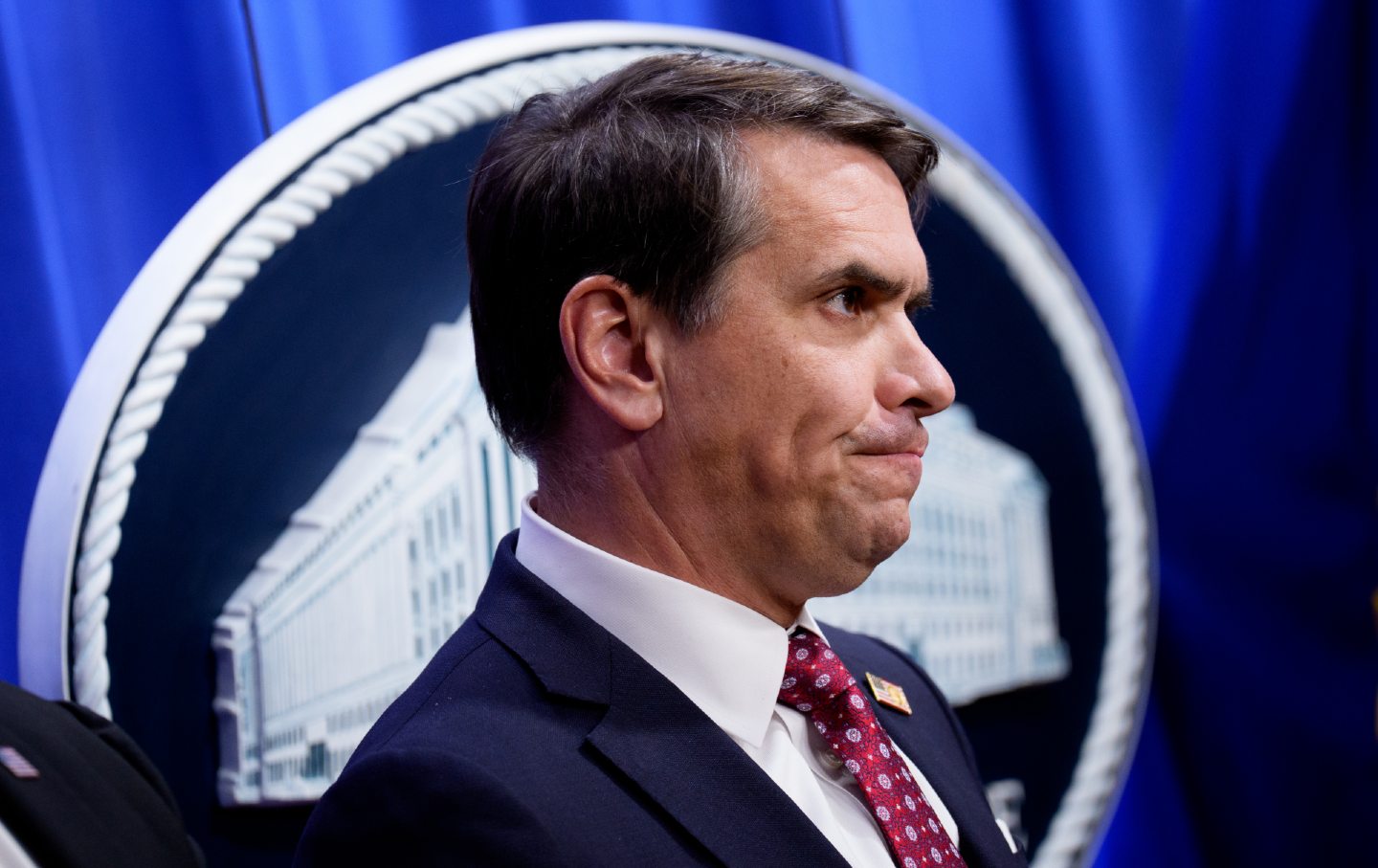
A Trump Administration Official Says It Won’t Investigate the Killing of Renee Good A Trump Administration Official Says It Won’t Investigate the Killing of Renee Good
Deputy Attorney General Todd Blanche makes clear that the Department of Justice won’t look into the death of Renee Good—but that won’t stop Minnesota from investigating.

Martin Luther King Jr.’s Dream: Love Against Racism Martin Luther King Jr.’s Dream: Love Against Racism
As Dr. King reminded us, “Hate cannot drive out hate; only love can do that.” His words continue to call us toward justice, compassion, and the power of love to confront racism.



